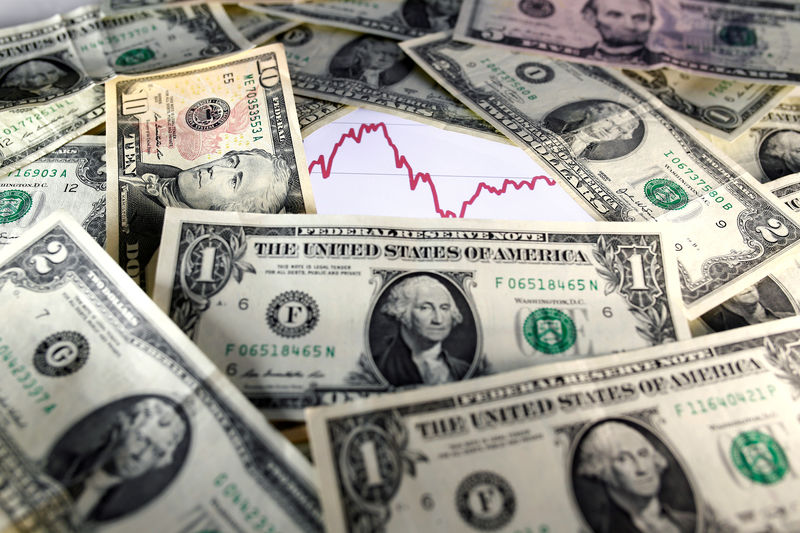By Tom Finn
LONDON (Reuters) - A brief rally in the euro petered out on Friday with political uncertainty and the threat of economic decline in Europe pulling the currency down against the dollar.
Sporadic signs of recovery in European business activity have not helped the euro break out of the $1.11-1.14 range it's been stuck in since February.
Euro zone manufacturing surveys released on Thursday showed further contraction in April. The threat of U.S. tariffs on European automobiles and upcoming European elections have also weighed on the currency, analysts said.
The dollar has edged higher since Federal Reserve Chairman Jerome Powell played down a recent slowing in inflation and said he saw no reason to cut interest rates.
The euro was down 0.1 percent at $1.1172, having eased back from $1.1219 overnight, though it was still stronger on the week.
The dollar index reached 97.844 against a basket of currencies, up from a low of 97.149 earlier in the week. Some traders speculated the dollar would gain further if U.S. jobs data on Friday came in better than expected.
"'Sell in May and go away'. With the dollar strong at the moment and emerging markets performing on the soft side, today’s jobs data could well give that market adage a little more legs," said Chris Turner, head of FX strategy at ING in London.
It has been a quiet week for major currencies. Volatility was at multi-year lows and liquidity was limited with Japan and China on extended holidays.
The British pound has gained 1.3 percent amid tentative hopes of a breakthrough in Brexit talks.
The Australian and New Zealand dollars have weakened on speculation both countries will cut interest rates next week.
The Reserve Bank of Australia meets on May 7 and the Reserve Bank of New Zealand a day after. Each may cut rates after low inflation reports.
Money markets are now pricing in a 49 percent chance the Fed will cut rates this year, down from more than 61 percent before Powell’s remarks.

The pricing may change again after the U.S. jobs report for April is released. Forecasts are for payrolls to rise by 185,000 with unemployment at 3.8 percent.